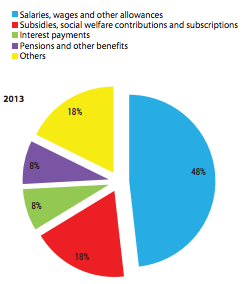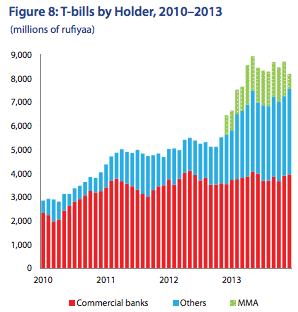The Maldives Monetary Authority (MMA) has rejected claims by the US State Department that it has any knowledge of funds being used to finance terrorist activities abroad (May 11).
The MMA’s statement came in response to a report from the US government that the authority believed funds from the Maldives were being used to sponsor terrorist activities.
“The MMA has neither received nor communicated any information regarding confirmed operation of terrorist financing activities,” said the MMA.
The US Country Reports on Terrorism 2013 claimed that criminal proceeds were coming from hawala systems (informal money transfer networks) to transfer money between islands.
“Maldivian authorities believe that funds are currently being raised in Maldives to support terrorism abroad; however, there is no reliable information regarding the amounts involved,” read the US report.
“While no official studies yet have been conducted, the Maldivian Central Bank believes that criminal proceeds mainly come from domestic sources, as a large percentage of Suspicious Transaction Reports (STRs) are related to Maldivians,” it continued.
The Maldivian Democratic Party (MDP) has today cited the US report as evidence that the government is not doing enough to combat terrorism.
“The Maldivian Democratic Party strongly condemns the government’s failure to bring an end to terrorist and extremist activities as funds are raised in the Maldives to fund terrorism abroad,” read a press release today.
The party suggested that examples of Maldivians engaging in extremism and terrorism was on the rise, suggesting the government was not doing enough to resolve organised criminal activity in the country.
In response to the US report, the MMA has contended they have not received any confirmed suspicious transaction reports related to terrorist financing in the Maldives through formal or informal money transfer networks.
The authority also expressed confidence in the industry’s framework for preventing such operations, adding that any companies that are under their supervision are subject to the Anti-Money Laundering and Combatting the Financing of Terrorism (AML/CFT) obligations.
AML/CFT legislation drafted by the MMA was passed by the People’s Majlis last month and ratified by President Abdulla Yameen on April 13.
The new law introduced rules governing financial transactions and the inflow and outflow of money from the Maldives.
“We are pleased to note that most of these financial institutions have internal policies, procedures and programs to implement those obligations,” the MMA statement added.
The US State Department had further noted growing concern since 2010 “about the activities of a small number of local violent extremists involved with transnational terrorist groups”.
“There has been particular concern that young Maldivians, including those within the penal system, may be at risk of becoming radicalized and joining violent Islamist extremist groups. Links have been made between Maldivians and violent extremists throughout the world,” the report stated.
The department also suggested that the Maldives has few laws which effectively control the movement of people and money into and out of the country, adding that due to its “sprawling island geography and insufficient technological capabilities” the coastguard could not effectively patrol the territory.

